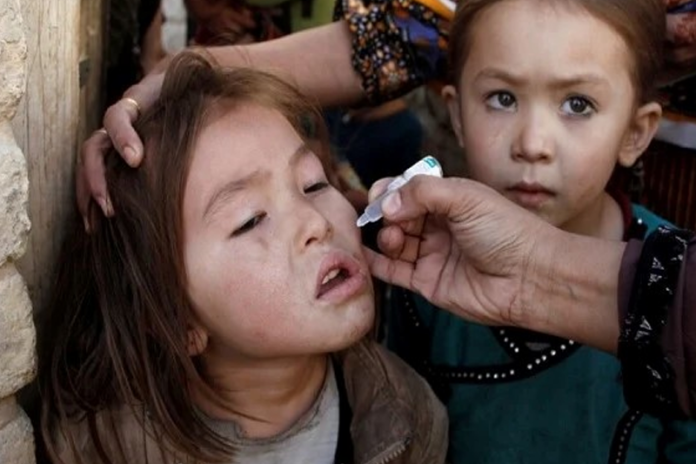The pressing issue being ignored

- 347
- 0
Recently the British High Commissioner Christian Turner was quoted to have observed that Pakistan's population if increased at the current pace is set to double in the next 30 years. This indicates how unchecked the population growth is going on in our country due to which our resources are burdened to unbearable extent, badly affecting the quality of life of the masses.
The irony is that this pressing issue is not been given proper attention by the successive governments, both civilian and military. The irony is that we are wailing our dwindling resources of gas, electricity and food but never peep into the root cause of the problem. The core issue is the difference between supply and demand. With the increase in population, the demand for utilities is becoming higher while our resources are not being increased at the same pace due to which we are deep in economic constraints. It is high time all the stakeholders including the government, the parents and policy makers think about family planning on priority basis so that our children have access to basic amenities like education, food, water , shelter and are grown into well-educated and healthy and law abiding citizens to become useful members of the society.
It is ironic that at times when the country is faced with unprecedented economic challenges, with our energy, water and food resources dwindling fast, the country's population is increasing by leaps and bounds, further burdening the above-mentioned means of living. It seems as if getting married and having more children is the ultimate goal of Pakistanis. And is feared that if the population growth continues at the current pace of 2.8 per cent, it is poised to touch the whopping 250.13 million number after seven years.
The mindset to have more children is devoid of any logic as majority of us fail to provide quality food, quality education and other facilities to our children and despite the high prices of foods, unavailability of drinking water and shrinking sources of income and joblessness, people are not concerned about the economic burden due to high population which is said to be going to double in size in the next 30 years or so. And now a stage has come where our country has become the world's 5th most populous country, replacing Brazil which has slipped to number 6. As per available statistics citing the United Nations sources, Pakistan population reached the 220.1 million on the World Population Day July 11 during 2020 when the world was in grip of corona virus and a latest report says that the ratio of child birth has increased after corona in Pakistan which is a matter of serious concern. It shows that we have no regards for family planning and are increasing the sizes of our families in an haphazard way, just adding to the burden of the national resources. As a matter of fact, the successive governments have been trumpeting to forming a mechanism to bring down the prices of essential commodities and making efforts to rising the standard of common man, but they are totally in slumber about the unbridled population growth which is the main cause for burdening our resources.
As per UN report, Pakistan is already in the list of countries which are having water and food shortage issue and by 2030, it is going to be water-scarce country with little water available for crops and domestic consumption, On the other hand, our Food Import bill has soared in the post-pandemic scenario and a valuable foreign exchange is being spent on food import which is an unfortunate development for a country which is an agri-based economy. Just imagine our population has increased so rapidly that even our staple food wheat resources are not enough to meet the demands our people.
Similarly, the indigenous gas resources are fast dwindling and now we have reached a stage that our population growth has outpaced the energy resources with both gas and electricity unavailable to masses at cheaper rates. The population growth is not only taking toll on our economy but the health sector is also extremely burdened and health experts attribute the high number of child and maternal mortality to unplanned population growth. They say that bearing more children affects the mothers health adversely and they deliver unhealthy children who are prone to diseases. Similarly, the mothers health also deteriorates which is visible from the high maternal deaths ratio in our country. On the other hand, our country is faced with the issue of 'out of school children' and a latest report says that an estimated 22.8 million Pakistani boys and girls aged 5-16 years are out of schools mainly due to poverty. In this way, our country has become the world's second country in list of countries where the highest number of children is out-of-schools. It is not that parents do not send their children to schools which is evident from the report which says that an estimated 10.7 million boys and 8.6 million girls are enrolled at the primary schools by parents but due to the unaffordability factor of the school expenses, they start dropping out of schools within years and a stage has come when their number has dropped to 3.6 million boys and 2.8 million girls at lower secondary and then the secondary level as well. In this backdrop of fast depleting national resources, one is at loss for words as to why our policy-makers are ignoring this issue.
It really hurts that our population has registered an increase by more than six times in seven decades since 1950. Our current birth rate is the highest in South Asian countries with an annual birth rate of 2.8 per cent which shows our apathy towards this serious issue. The above statistics are an eye-opener for the policy-makers who need to be awakened from deep slumber as the bomb of unbridled population is ticking fast and time has come to pay heed to this very serious issue. Just imagine, there is an addition of 3.6 million more people to our population every year as compared to other countries of SAARC region which shows we are totally unconcerned about this issue.
Published in The Daily National Courier, August, 20 2022
Like Business on Facebook, follow @DailyNCourier on Twitter to stay informed and join in the conversation.

















































